
The evidentiary miracle of Húd, on whom be peace, in the deliverance of the true believers of the community at the moment when the Wind descended. معجزهی هود علیهالسلام در تخلص ممنان امت به وقت نزول باد
ممنان از دست باد ضایره جمله بنشستند اندر دایره
All the true believers, (seeking refuge) from the violence of the pernicious Wind, seated themselves in the circle (drawn by Húd).
یاد طوفان بود و کشتی لطف هو بس چنین کشتی و طوفان دارد او
The Wind was (like) the Flood, and His (God’s) grace was the ship (Ark): He hath many such arks and floods.
پادشاهی را خدا کشتی کند تا به حرص خویش بر صفها زند
God makes a king to be (as) an ark (for his subjects), to the end that he, (impelled) by selfishness, may assault the ranks (of his enemies).
قصد شه آن نه که خلق آمن شوند قصدش آنک ملک گردد پایبند
The king’s aim is not that the people should become safe; his aim is that his kingdom should become (like) a fetter (on his foot).
آن خراسی میدود قصدش خلاص تا بیابد او ز زخم آن دم مناص
The ass that turns the mill is running along: its aim is (to obtain) release, so that it may gain refuge from blows at that moment.
قصد او آن نه که آبی بر کشد یاکه کنجد را بدان روغن کند
Its aim is not to draw some water or thereby (by turning the mill) to make sesame into oil.
گاو بشتابد ز بیم زخم سخت نه برای بردن گردون و رخت
The ox hurries for fear of (receiving) hard blows, not for the purpose of taking the cart and baggage (to their destination);
لیک دادش حق چنین خوف وجع تا مصالح حاصل آید در تبع
But God put such fear of pain in him, to the end that good results might be achieved in consequence (of his fear).
همچنان هر کاسبی اندر دکان بهر خود کوشد نه اصلاح جهان
Similarly, every shopkeeper works for himself, not for the improvement of the world.
هر یکی بر درد جوید مرهمی در تبع قایم شده زین عالمی
Every one seeks a plaster for his pain, and in consequence of this a whole world is set in order.
حق ستون این جهان از ترس ساخت هر یکی از ترس جان در کار باخت
God made of fear the pillar (support) of this world: because of fear every one has devoted himself to work.
حمد ایزد را که ترسی را چنین کرد او معمار و اصلاح زمین
Praise be to God that on this wise He has made a fear to be the architect and (means for the) improvement of the world.
این همه ترسندهاند از نیک و بد هیچ ترسنده نترسد خود ز خود
All these (people) are afraid of (losing) good and (suffering) evil: none that is afraid is himself frightened by himself.
پس حقیقت بر همه حاکم کسیست که قریبست او اگر محسوس نیست
In reality, then, (the creator of their fear and) the ruler over (them) all is that One who is near, though He is not perceived by the senses.
هست او محسوس اندر مکمنی لیک محسوس حس این خانه نی
He is perceived in a certain hiding-place (the heart), but not perceived by the sense of this house (the body).
آن حسی که حق بر آن حس مظهرست نیست حس این جهان آن دیگرست
The sense to which God is manifested is not the sense of this world; it is another.
حس حیوان گر بدیدی آن صور بایزید وقت بودی گاو و خر
If the animal sense perceived those (Divine) forms (ideas) an ox or an ass would be the Báyazíd of the time.
آنک تن را مظهر هر روح کرد وآنک کشتی را براق نوح کرد
He who made the body to be the theatre in which every spirit is manifested, He who made the Ark to be the Buráq (steed) of Noah,
گر بخواهد عین کشتی را به خو او کند طوفان تو ای نورجو
He, if He will, makes (what is) a very ark in (its ordinary) character to be a (destructive) flood for you, O seeker of light.
هر دمت طوفان و کشتی ای مقل با غم و شادیت کرد او متصل
At every moment, O man of little means, He has conjoined with your grief and gladness an ark (to save you) and a flood (to destroy you).
گر نبینی کشتی و دریا به پیش لرزها بین در همه اجزای خویش
If you do not perceive the ark and the sea (flood) before you, (then) consider (whence come) the tremors in all your limbs.
چون نبیند اصل ترسش را عیون ترس دارد از خیال گونهگون
Since his (the trembling man’s) eyes do not perceive the source of his fear, he is affrighted by diverse kinds of phantasy.
مشت بر اعمی زند یک جلف مست کور پندارد لگدزن اشترست
(For example), a drunken boor strikes a blind man with his fist: the blind man thinks it is a kicking camel,
زانک آن دم بانگ اشتر میشنید کور را گوشست آیینه نه دید
Because at that moment he heard a camel’s cry: the ear, not the eye, is the mirror for the blind.
باز گوید کور نه این سنگ بود یا مگر از قبهی پر طنگ بود
(But) then again the blind man says, “No, it was a stone (which some one threw at me), or perhaps it was (a brick) from an echoing dome.”
این نبود و او نبود و آن نبود آنک او ترس آفرید اینها نمود
It was neither this nor that nor that: He who created fear produced these (phantasies).
ترس و لرزه باشد از غیری یقین هیچ کس از خود نترسد ای حزین
Certainly fear and trembling are (produced) by another: nobody is frightened by himself, O sorrowful man.
آن حکیمک وهم خواند ترس را فهم کژ کردست او این درس را
The miserable philosopher calls fear “imagination” (wahm): he has wrongly understood this lesson.
هیچ وهمی بیحقیقت کی بود هیچ قلبی بیصحیحی کی رود
How should there be any imagination without reality? How should any false coin pass (into circulation) without a genuine one?
کی دروغی قیمت آرد بی ز راست در دو عالم هر دروغ از راست خاست
How should a lie fetch a price (have value) without truth? Every lie in both worlds has arisen from truth.
راست را دید او رواجی و فروغ بر امید آن روان کرد او دروغ
He (the liar) saw the currency and prestige enjoyed by truth: he set going (circulated) the lie in hope of (its enjoying) the same.
ای دروغی که ز صدقت این نواست شکر نعمت گو مکن انکار راست
O (incarnate) lie, whose fortune is (derived) from veracity, give thanks for the bounty and do not deny the truth!
از مفلسف گویم و سودای او یا ز کشتیها و دریاهای او
Shall I speak of the philosopher and his mad fancy, or of His (God’s) ships (arks) and seas (floods)?
بل ز کشتیهاش کان پند دلست گویم از کل جزو در کل داخلست
Nay, (I will speak) of His arks, which are the spiritual counsel (given by the saints); I will speak of the whole: the part is included in the whole.
هر ولی را نوح و کشتیبان شناس صحبت این خلق را طوفان شناس
Know every saint to be a Noah and captain of the Ark; know companionship with these (worldly) people to be the Flood.
کم گریز از شیر و اژدرهای نر ز آشنایان و ز خویشان کن حذر
Do not flee from lions and fierce dragons, (but) beware of friends and kinsmen.
در تلاقی روزگارت میبرند یادهاشان غایبیات میچرند
They waste your time (when you are) face to face (with them), and your recollections of them devour (the time of) your absence (from them).
چون خر تشنه خیال هر یکی از قف تن فکر را شربتمکی
Like a thirsty ass, the image of each one (in your phantasy) is licking up the sherbet of (spiritual) thought from the flagon of the body.
نشف کرد از تو خیال آن وشات شبنمی که داری از بحر الحیات
The (mental) image of those talebearers has sucked out of you the dew that you have (derived) from the Sea of Life.
پس نشان نشف آب اندر غصون آن بود کان مینجنبد در رکون
The sign, then, of the absorption (drying up) of the water (sap) in the boughs is that they are not moved to sway (to and fro).
عضو حر شاخ تر و تازه بود میکشی هر سو کشیده میشود
The limb of him who is free (detached from the world) is (like) a moist fresh bough: (if) you pull it in any direction, it is (easily) pulled.
گر سبد خواهی توانی کردنش هم توانی کرد چنبر گردنش
If you want a basket, you can make it (a basket); you can also make its neck a hoop;
چون شد آن ناشف ز نشف بیخ خود ناید آن سویی که امرش میکشد
(But) when it has been sucked dry by the draining of (the sap from) its root, it does not come (readily) in the direction to which (your) command is pulling it.
پس بخوان قاموا کسالی از نبی چون نیابد شاخ از بیخش طبی
Recite, then, from the Qur’án (the words) they stand up languidly, when the bough gets no medicinal (curative) treatment from its root.
آتشین است این نشان کوته کنم بر فقیر و گنج و احوالش زنم
This symbol (allegory) is fiery, (but) I will cut it short and resume (the story of) the fakir and the treasure and the circumstances connected with it.
آتشی دیدی که سوزد هر نهال آتش جان بین کزو سوزد خیال
You have seen the fire that burns every (dry) sapling; (now) see the fire of the Spirit by which phantasy is burnt.
نه خیال و نه حقیقت را امان زین چنین آتش که شعله زد ز جان
Neither for phantasy nor for reality is there any protection against a fire like this which flamed forth from the Spirit.
خصم هر شیر آمد و هر روبه او کل شیء هالک الا وجهه
He is the adversary of every lion and every fox: everything is perishing except His Face.
در وجوه وجه او رو خرج شو چون الف در بسم در رو درج شو
Go into His aspects (attributes) and Face (Essence), become spent (emptied of self): go in, become enveloped (suppressed), like the alif in bism.
آن الف در بسم پنهان کرد ایست هست او در بسم و هم در بسم نیست
In bism the alif has stayed hidden: it is in bism and also it is not in bism.
همچنین جملهی حروف گشته مات وقت حذف حرف از بهر صلات
Such is the case with all the letters that disappear when they are elided for the purpose of (effecting) conjunctions.
از صلهست و بی و سین زو وصل یافت وصل بی و سین الف را بر نتافت
It (the suppressed alif in bism) is a sila (means of conjunction) and through it the b and the s have attained to union: the union of the b and the s could not bear the (external intervention of the) alif.
چونک حرفی برنتابد این وصال واجب آید که کنم کوته مقال
Since this union cannot bear (the intervention of) a single letter, it behoves me to cut short the discourse.
چون یکی حرفی فراق سین و بیست خامشی اینجا مهمتر واجبیست
Since a single letter is the cause of separation between the s and the b, here silence is a most urgent duty.
چون الف از خود فنا شد مکتنف بی و سین بی او همیگویند الف
When the alif has passed away from self(-existence), taking shelter (in self-abandonment), the b and the s say “alif” without it.
ما رمیت اذ رمیت بی ویست همچنین قال الله از صمتش بجست
(The words) thou didst not throw when thou threwest are (an utterance spoken) without him (the Prophet); likewise (the words) God said sprang from his silence.
تا بود دارو ندارد او عمل چونک شد فانی کند دفع علل
So long as a drug exists (independently), it has no effect; it removes diseases (only) when it has perished (has been dissolved and assimilated).
گر شود بیشه قلم دریا مداد مثنوی را نیست پایانی امید
(Even) if (all) the forest should become pens and (all) the ocean ink, (yet) there is no hope of bringing the Mathnawí to an end.
چارچوب خشتزن تا خاک هست میدهد تقطیع شعرش نیز دست
So long as the Brick-maker’s mould is (filled with) earth, the scansion of its (the Mathnawí’s) poetry, too, will be kept up.
چون نماند خاک و بودش جف کند خاک سازد بحر او چون کف کند
When earth remains no more and He (God) dries (withers and destroys) its existence, His sea when it foams will make (fresh) earth.
چون نماند بیشه و سر در کشد بیشهها از عین دریا سر کشد
When the forest remains no more and disappears (from existence), (other) forests will raise their heads from the essence of the Sea.
بهر این گفت آن خداوند فرج حدثوا عن بحرنا اذ لا حرج
Hence that Lord of relief (from sorrow) said, “Relate Traditions (drawn) from our Sea, since there is no harm (in doing so).”
باز گرد از بحر و رو در خشک نه هم ز لعبت گو که کودکراست به
(Now) turn back from the Sea and set thy face towards dry land: talk only of the plaything, for it is better (more suitable) for the child,
تا ز لعبت اندک اندک در صبا جانش گردد با یم عقل آشنا
So that in his boyhood, (advancing) little by little beyond the plaything, his spirit may become acquainted with the ocean of Reason.
عقل از آن بازی همییابد صبی گرچه با عقلست در ظاهر ابی
By means of that play the boy is (gradually) acquiring reason, though superficially it (his play) is repugnant (to reason).
کودک دیوانه بازی کی کند جزو باید تا که کل را فی کند
How can a demented child play? There must be (in the child) a part (of reason) in order that it (the part) may attain to the whole.
Special Offers
by: Reza about (category: Masnavi, Persian Poetry)


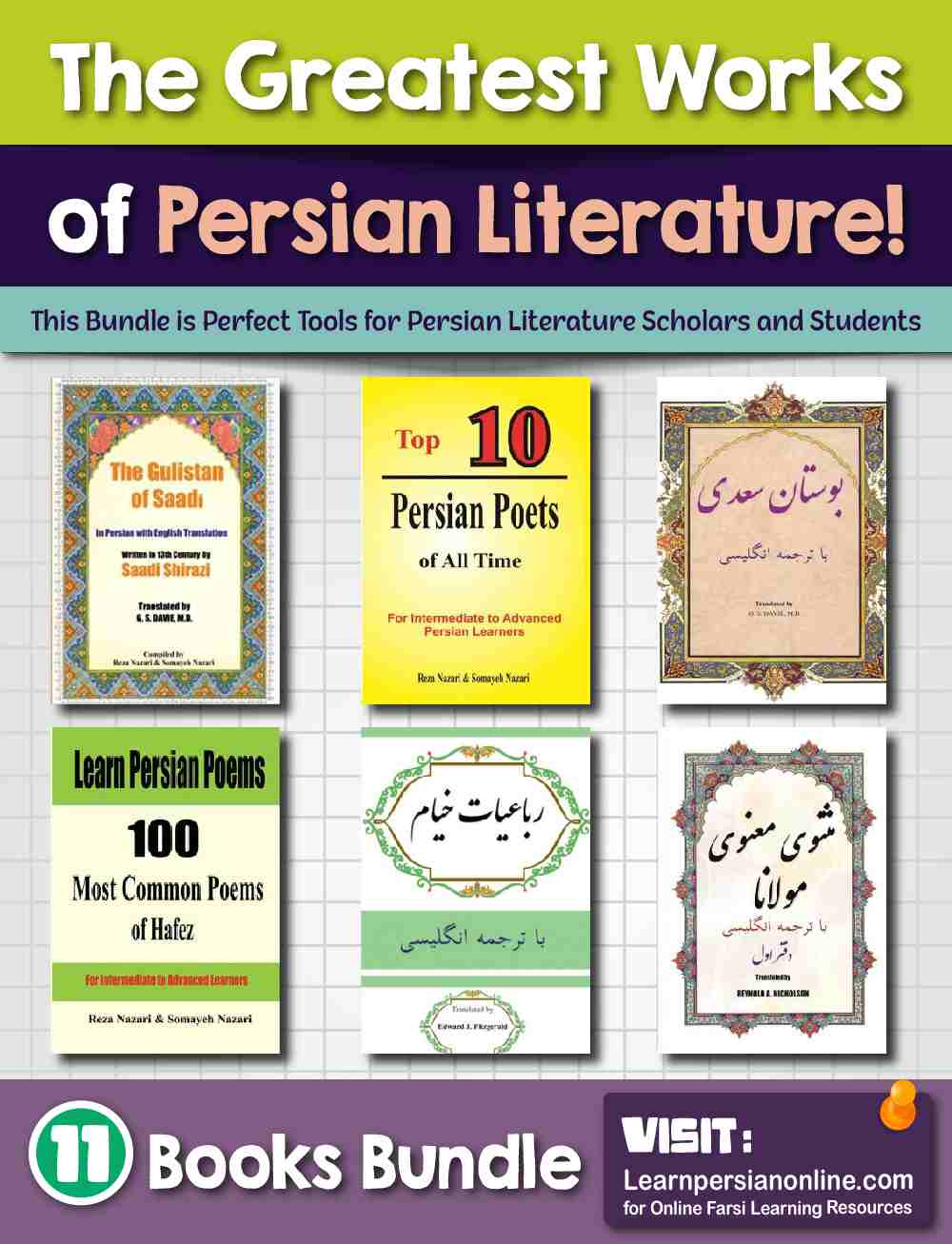
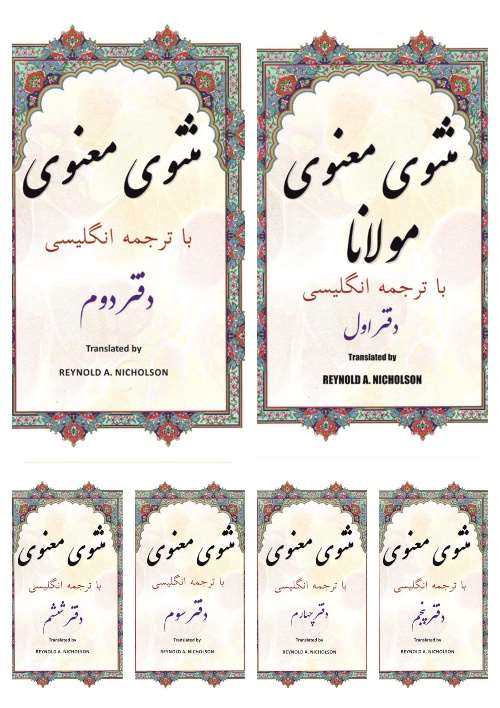
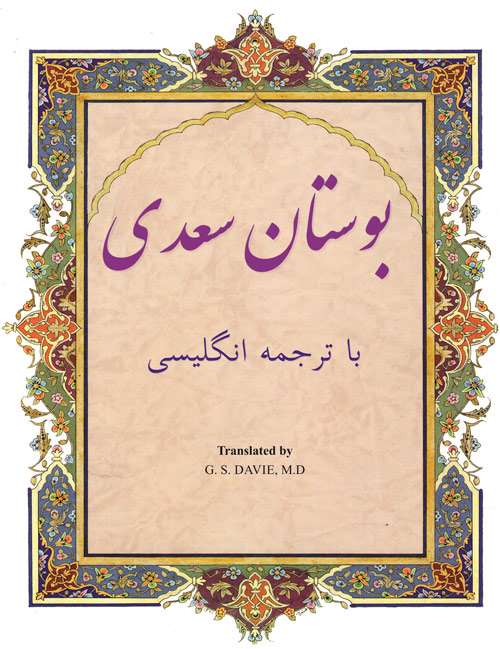
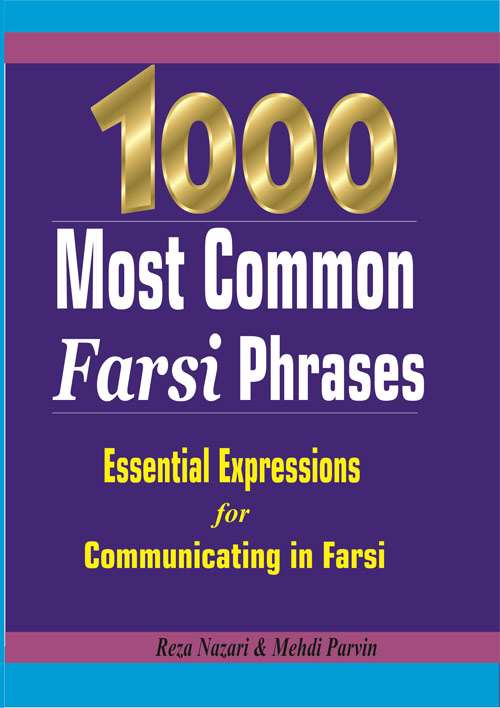
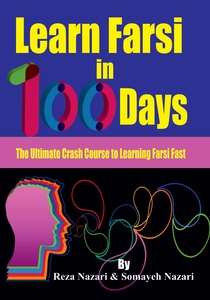






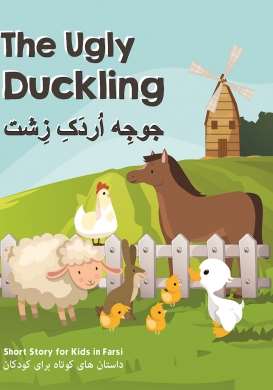
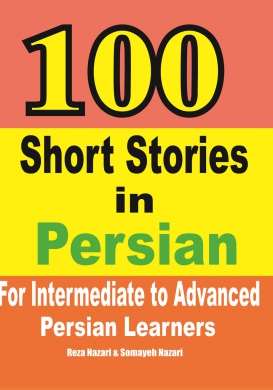
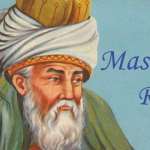
What people say about "The evidentiary miracle of Húd"?
No one replied yet.